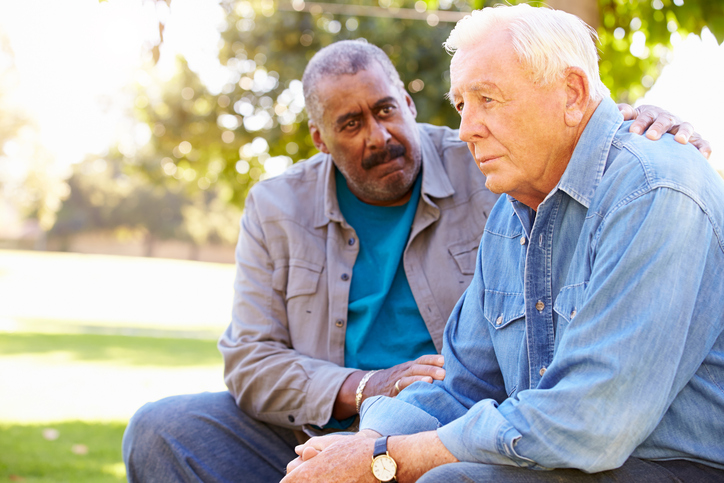Losing someone you love can cause almost unbearable pain. The way people experience their pain and express grief varies from person to person. Some people cry; others express anger. It’s important to accept grief as a natural part of the healing process, and to progress through the process at your own pace.
It can also be helpful to understand the typical stages of grief that many people experience, although you may not experience every stage.
Denial and Shock
When impacted by a loss, the initial reaction might be denial. As the grieving person begins to talk about the loss and the feelings associated with it, the shock becomes real and hits hard. It is natural to want to escape this reality, and so denial sets in.
Anger
The grieving person may get angry at the seeming unfairness of the events and wonder, “Why should I/we suffer?” As they receive support from friends, colleagues and family members, the grieving person will become less angry.
Bargaining
Some people may attempt to bargain with a higher power for the return of the way things “used to be.”
Guilt
Many times, the person who is left behind feels guilty about the circumstances that are not under their control. Forgiveness and acceptance of reality is important in order to move on.
Depression
With a loss, there may be a “wish” to go back to the way things “used to be.” Some people will experience mood fluctuations and may feel isolated or lonely for a long time. It is important to allow those who are grief-stricken enough time to work though this stage.
Loneliness
Some people will experience loneliness as their lives change because of the loss. It’s important to fill the void with new relationships, activities or interests. As the grief-stricken person reaches out to others, they will be able to successfully work through this important stage.
Acceptance
At this stage, those experiencing the loss accept and deal with the change. This does not mean that the person has forgotten all about the events, but just that they have been able to accept the loss as a final reality. They are taking control of how they feel and behave.
Hope
Finally, those who have suffered will again experience the hope of the future. They will look ahead to brighter and better times, or at least to a peaceful acceptance of their circumstances and a sense of getting on with life.
For Health Advocate members
- If you’re a Health Advocate member with access to our EAP+Work/Life Program, and you have experienced the loss of a loved one, reach out to a Licensed Professional Counselor for free, confidential support to help you cope. Additionally, a Work/Life Specialist can help you find resources for help, and you can also access the website for resources, educational information, and webinars.
- If you’re Health Advocate member with our Advocacy services, contact us to speak with a Personal Health Advocate who specializes in behavioral health. The Personal Health Advocate can help you identify grief counselors and support groups in your area, resolve final medical billing and claims issues, and explain the impact of a family member’s death on your medical coverage. If you need a new health plan, we can help you find options, in-network doctors and schedule appointments.



